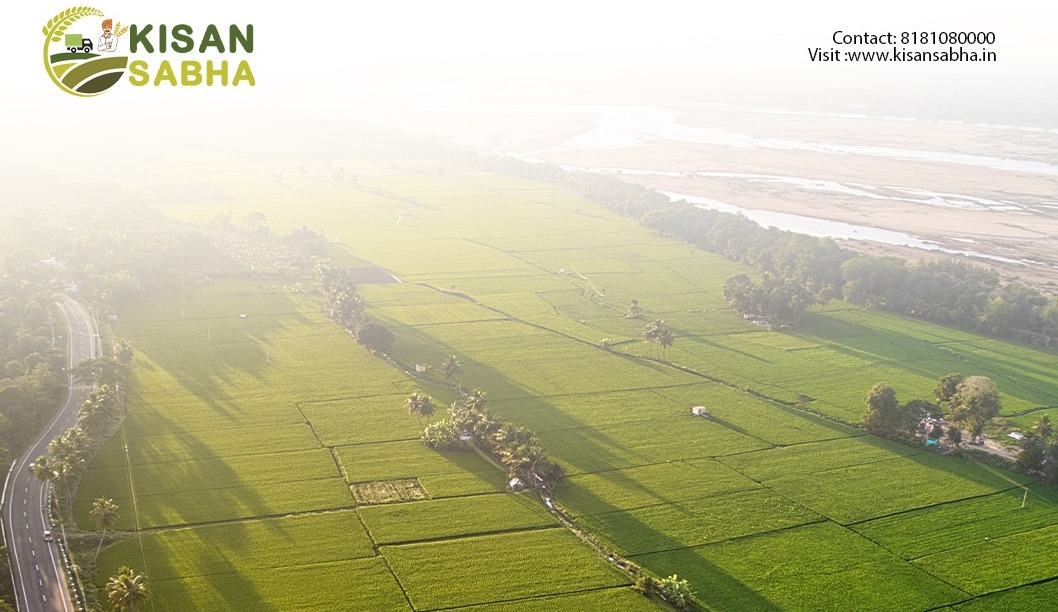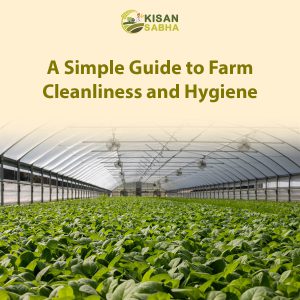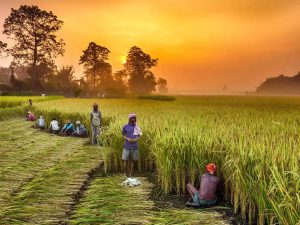Agriculture, which is also necessary for human survival, is the foundation of human society. It has existed for tens of thousands of years, with countless advancements made by man over time. Nowadays, conventional farming and organic farming are the two primary types of agriculture that are widely practiced around the world. Which is superior has been hotly discussed. Let’s look at both systems to grasp each system better and examine the differences between organic farming and conventional farming before we decide which type of farming is best and ponder about “organic farming versus conventional farming.”
Organic Farming
Organic farming is a farming method that aims to produce wholesome, healthy food while protecting the environment and the land.
Organic farmers employ crop rotation, cover crops, and biological fertilizer inputs to enhance soil quality and increase organic soil matter.
Organic farmers increase the soil’s capacity to absorb water by adding more organic matter, which lessens the effects of drought and flooding. Enhancing soil organic matter also helps the soil absorb and retain the nutrients and carbon needed to develop healthy crops, which are thus more resilient to pests and diseases.
Features of Organic Agriculture
The following are some important aspects of organic farming:
- use of organic fertilizers like compost and manure.
- The use of sustainable agricultural techniques like crop rotation and mixed farming
- Genetically modified (GM) seeds, artificial pesticides, or synthetic fertilizers are not used in organic agriculture.
Conventional Farming
The goal of conventional agricultural techniques is to increase crop output. In conventional farming, crop quality is frequently overlooked as fertilizers and pesticides are usually used to improve agricultural output.
Conventional farmers employ pesticides to control weeds and pests as well as to provide crops with supplemental nutrition. Traditional agricultural practices are not viable since they hurt the land and environment.
The use of chemicals in traditional agriculture has a detrimental effect on the environment by creating water pollution, soil erosion, and an increase in greenhouse gas emissions, all of which are harmful to human health.
Characteristics of Conventional Farming
The fertility of crops, pests, and diseases are all controlled through the use of potent pesticides in traditional farming. The following are some features of conventional farming:
- Chemical fertilizer use
- There is the use of chemical pesticides.
- The use of chemical weed killers.
- Use of genetically engineered organisms capable of producing consistent crops
- Only one or two crops are grown in the same land per growing season or year.
- Organic vs. conventional farming
Difference between organic farming and Conventional Farming
The main distinction between conventional and organic farming is that the latter uses chemical intervention to control weeds, and pests, and to nourish the plants. That refers to artificial fertilizers, herbicides, and insecticides. Instead, organic farming depends on ecological concepts like biodiversity and composting to generate a plentiful supply of wholesome food.
It’s important to note that “organic production” goes beyond merely avoiding synthetic inputs in favor of natural ones or avoiding traditional chemical inputs altogether. Crop rotations, the utilization of composted animal manures, and green manure crops are just a few of the ancient farming methods that organic farmers utilize in ways that are economically viable in today’s society. In organic production, the interplay of management methods is the main issue and the whole system’s health gets stressed. Many different tactics should be applied by organic farmers to increase soil fertility and sustain biological diversity.
Conclusion
As we can see above, organic farming offers many more advantages than conventional farming. To produce nutrient-rich crops and pave the way for a sustainable form of agriculture, organic farming seeks to enhance the overall quality of the soil while also taking into account the well-being of the environment and other living things.
Farmers in India still need to get educated about the effects and drawbacks of conventional farming, and there is still a long way to go in the development of organic farming.




